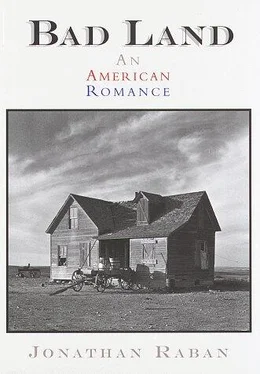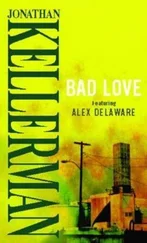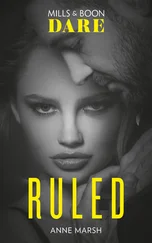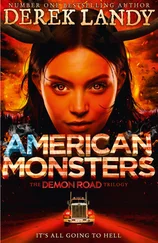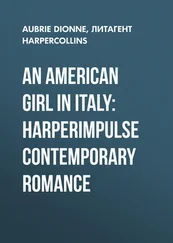An emigrant myself, trying to find my own place in the landscape and history of the West, I took the ruins personally. From the names in the graveyards, I thought I knew the people who had come out here: Europeans, mostly of my grandparents’ generation, for whom belief in America, and its miraculous power of individual redemption, was the last great European religion. Faith in a bright future was written into the carpentry of every house. To lay such a floor as that, tongue in chiseled groove, was the work of a true believer.
Looking now at the fleet of lonely derelicts on the prairie, awash in grass and sinking fast, I could guess at how that faith had been shaken.
“IMMIGRANT, n .,” says Ambrose Bierce’s The Devil’s Dictionary ; “An unenlightened person who thinks one country better than another.”
I knew about that. Aged forty-seven, I had chucked up everything and just cleared off. It wasn’t a long- or well-considered move. On a visit to the Pacific Northwest, I caught a shadowy glimpse of a new life, and flung myself at it. Arrived in Seattle, I worked hard to make the new life stick, but I was short of roots and reasons. I took to making long drives eastward (which in the West means backward in time), always looking out for some point of connection between my own careless flight west and that of my precursors. Lacking an American past of my own, I hoped to find someone else’s cast-off history that would fit my case.
Here, among the ruins, a thousand miles and eighty years east of Seattle, was the point I had been searching for. I was certain of it.
Alittle further on, past another pocket cemetery, stood a schoolhouse on a hill. Hay bales were stacked in what had been the yard, between the trestle frame of the swings and the basketball hoop on its pole. Some flakes of whitewash still adhered to the bare grain of the wood on the schoolhouse wall. I stepped inside.
A dead woodpecker lay on the floor and more swallows had built their mud igloos on the walls, but the schoolroom retained the odor of morning milk, wet coats and spelling bees. The place had been heated by a great cast-iron stove, dusty and birdlimed now. In winter, it would have roared and crackled through the lessons, its voice as memorable to the students as that of the teacher. A framed sepia engraving of George Washington hung over the blackboard, on which some recent visitor had left the chalked message, SPOKANE OR BUST!!!
The teacher’s quarters were downstairs in the basement. Ice heaves had wrecked the cement floor, but everything else was in place: the chaste single bed, the table and upright chair, the propane gas cooker, the rocker, with a maroon velvet cushion, for listening to the radio in the evenings over a mug of cocoa and a book. The chest of drawers had been emptied, but there were three cardboard boxes of moldering schoolbooks under the bed. Comfortably seated in her rocking chair, I leafed through the teacher’s library. The books had been published between 1910 and the late 1930s: grade-school readers, most of them put out by Ginn and Company, enshrining a version of America that now seemed hardly less distant than that of the Pilgrim Fathers, it was so bold and bright and innocent.
Have you a flag hanging in your schoolroom? What are the colors in our flag? Many people think that these colors have a meaning.
They think that the red in our flag means that we must be brave. They think that the blue in our flag means that we must be true. They think that the white means that we must be clean.
A poem, printed in gothic script, nicely caught the mood of things:
A youth across the sea, for the sake of a hope in his breast,
Shook out a steadfast sail upon a dauntless quest.
He had seen a star in the West,
He had dreamed a dream afar;
He wrought and would not rest.
Heirs of that dream we stand,
Citizens of that star—
America, dear land!
I read stories about Washington and Betsy Ross, about the sickly boyhood of Theodore Roosevelt (“For years he had to sleep sitting up against some pillows. He could not lie down without coughing”) and the impoverished boyhood of Andrew Jackson (“But Andrew kept growing in spite of all they said. He clinched his little fists at colic, measles, and whooping cough. He talked very early, and walked instead of crawled …”).
From a useful book titled Who Travels There , I learned what to do when lost in the wilderness:
If you ever find that you are lost, do not become frightened. There is more danger in fright than there is of starvation or accident. If you allow yourself to become frightened, you become possessed of what we call “the panic of the lost.”
As soon as you discover that you have lost your way in the wilderness, sit down with your back against a stump or stone, take out your jackknife and play mumblety-peg, or sing a song. This will pull you together, so to speak. Then take a stick, smooth off a place in the dirt, and try to map out your wanderings. Making this map will cause you to remember forgotten objects you have passed on the road, and may help you to retrace your steps.
The America of the schoolbooks was a realm of lonely but invigorating adventure, where poor farm boys grew up to be President; land of the brave, the true and the clean, where a beckoning star stood permanently above the western horizon and poverty and ill health were mere tests of one’s American mettle.
To prairie children, this schoolbook America must have seemed reasonably close to home. Its heroes were small farmers like their parents. There were no cities in it and not a whiff from the smokestacks of heavy industry. Theodore Roosevelt’s childhood (most of which had actually been spent on East 20th Street in Manhattan) was relocated, for storybook purposes, to the great outdoors, where little Theodore “tried to take part in all the sports which other children took part in. He tried so hard that before he was a big boy he could swim and row and skate and box and shoot. He could ride horseback. He could sail a boat.” Beyond the village and the farm lay the wilderness, from which boys with jackknives learned to navigate their way home. The values honored in the books — self-reliance, piety, woodcraft, patriotism — were all values that would come in handy in eastern Montana. Children in New York and Chicago, poring over the same texts, might as well have been reading about life in Uttar Pradesh.
Here, though, you could see your own experience intimately reflected in the books. The Grade 3 Learn to Study reader (1924) had a chapter titled “How to Save”:
Have you ever tried to help your father and mother to save money? Some children think that they cannot save, because they are not working and earning money. You can save money by saving other things.
Good advice followed. Save your clothes: keep out of the mud; hang your things up when you take them off; use a napkin when you’re eating; learn to sew on buttons. Mark your possessions: keep your rubbers fastened together with a clothespin; buy a 10¢ roll of adhesive tape and use it to put your name on your cap, gloves and boots; shave a strip off the top of your pencil and write your name there. Don’t waste costly paper: if you want to draw a picture, do it on the back of a used sheet.
The chapter on “Buying Christmas Presents” gave one an idea of the kinds of luxuries that were within dreaming distance of a third-grader on the prairie: a spinning top (10¢), a jackknife (38¢), a striped ball (5¢), a toy automobile (65¢), a locomotive ($1.00) and — hope against hope! — way up on top of the list, a pair of skates for $2.00. The twelve designated presents carne to a total of $5.68.
Iloaded two armfuls of books into the trunk of the car and headed south to Baker, where I stayed in a motel room furnished with junk from the wilder reaches of the 1950s. The pictures on its walls were all of water: two horseback explorers were in the act of discovering a mountain lake; a packhorse bridge spanned a river in what looked like Constable country; printed on dark blue velvet, a Japanese sea was in the grip of a tsunami. They were pictures for a dry country. At $23.50 for three beds, a bathroom and a fully equipped kitchen, the room was pleasingly in character with the frugal spirit of the place.
Читать дальше
